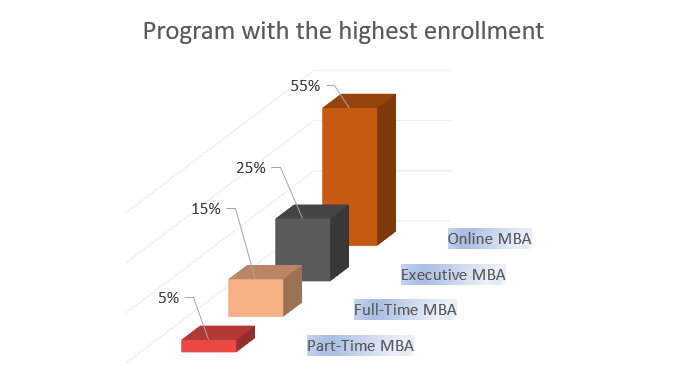Welcome! Are you curious about MBA admissions in India for 2024? Look no further! This all-in-one inclusive guide has you covered from top to bottom when it comes to applying for MBA programs.
From exam preparation to essay writing, cracking interviews, and everything in between, this article provides all the necessary information for getting into a business school in today’s competitive world.
It covers all the specifics including test score requirements, work experience expectations, application timelines, strategies, and more. So if you’re considering taking the leap into enrolling in a business school in 2024, be sure to explore this valuable resource. We are sure that it will guide you in the knowledge to navigate the admissions process like a pro and secure your spot in a top MBA program.
Contents
Key Takeaways:
- Exam prep strategies
- Application timelines
- Interview tips
- Financing and scholarships
- Salary and job prospects
This all-inclusive guide covers everything you need to know about the MBA admissions process for 2024 in India.
Overview of MBA Admissions
Once shortlisted candidates go through rounds of evaluation including group discussions, personal interviews and other assessments before final admissions are granted. Some of the MBA colleges in India include IIMs, ISB, FMS, MDI, and XLRI among others. The duration of the course is typically two years and can vary among types of MBA. It covers business subjects, like marketing, finance, operations and more.
Importance of an MBA in 2024
If you want to move up in the corporate world of 2024, MBA admission in india is one of the most important degrees needed for career progression and leadership opportunities. Considering the fact that automation and artificial intelligence have been disrupting a lot of industries, creative thinking, problem solving and strategic vision provided by an MBA program are now one of the most demanded skills.
Whether launching a business from scratch or managing an established enterprise, managers with MBAs bring ideas that are at the forefront of modern competitive business methods and team-building. A top b-school’s network and prestige also provide access that drives alumni career paths.
Understanding the MBA Landscape
There are three types of MBA programs available, Full-time MBA, part-time MBA and executive MBA. Each of these programs has a different approach to teaching and accommodates students from various domains. In this info, we shall focus on each of these courses in depth to provide an insight into the MBA Programs that are currently available.

Types of MBA Programs
However, choosing an MBA program is a thrilling step towards career growth, and it makes sense to feel bewildered with all the choices. Worry not, we are here to get through this journey side by side. Let’s dive into the three main types of MBA programs, each with its own unique rhythm and focus:
1. Full-Time MBA:
When you are already there, imagine that every day brings a hurricane of study and discovery. That’s full-time MBA life! Designed to be a short intense program that uses either one or two years, the fast-track business course is for new graduates and career switchers.
2. Part-Time MBA:
How can you find the balance between your dreams and present obligations? The part-time MBA is your hero! The evening and weekend program (former 2—4 years) allows spreading the academic load over a long period.
3. Executive MBA:
If you have years of experience with a desire to master the art of leadership? The executive MBA awaits! This intensive, part-time programme (usually 18 to 24 months) is aimed at experienced professionals who are already in the management level.
4. Online MBA:
Finally, the flexibility of the Online MBA is unmatched and it would best suit our current generation’s digital lifestyle. From one to three years in duration this opportunity makes it possible for you to earn your degree from almost anywhere on a timetable that accommodates your personal and professional demands.
Choosing the Right MBA Program for You
Remember, there’s no “one size fits all” in the MBA world. Choosing the right program depends on your career goals, your lifestyle, and your learning preferences. Take your time, explore your options, and find the perfect fit that’ll make your MBA journey as enriching and fulfilling as possible!
Top MBA Colleges in India
The following gives the best colleges in India for an MBA program: These schools provide great placement opportunities with solid track records for their MBA candidates. For more information about the colleges, click on them.
Student who are thinking about the mba admission 2024 apply online, can click on the desired college and view their mba admission fees and mba admission eligibility criteria to proceed with their dream college.
- Uncover educational excellence with our curated guides on the top MBA colleges in Bangalore and Top MBA colleges in Kerala; a guide to prestigious business schools emerging from these dynamic regions.
Explore Top MBA Colleges Offering Direct Admissions in Bangalore
Get free counseling and direct admission guidance for these colleges with our professional career expert Nidhi, Hurry up and fill out the form now!
MBA Admission Important Dates in India
When would be the mba admission 2024 last date, yes here are some key MBA admission deadlines in India for 2024:
- CAT Exam – Last week of November 2023. The official date will be announced by IIMs.
- The GMAT is offered year-round at test centers around the world. You can take the GMAT almost any day, with appointments available on weekdays and weekends.
- IIM Indore – January 2024 (expected). The exact dates will be announced later.
- IIM Ahmedabad – Mid-January to Mid-February 2024 (expected). Final deadlines vary by admission round.
- IIM Bangalore – January to March 2024. There are multiple admission rounds with different deadlines.
- IIM Calcutta – January to April 2024. Deadlines vary by admission round.
- XLRI Jamshedpur – Mid-November 2023 to Mid-January 2024. There are multiple admission rounds.
- MDI Gurgaon – November 2023 to April 2024. Deadlines vary by admission criteria and round.
- SPJIMR Mumbai – October 2023 to January 2024. Deadlines vary by admission round.
- NMIMS Mumbai – November 2023 to June 2024. Has multiple admission rounds.
- IIFT Delhi – First week of December 2023 (expected). Official date to be announced.
So in summary the mba admission 2024 last date in india is all given out, key MBA entrance exams like CAT and IIFT tend to be held in November/December. And top MBA colleges like the IIMs and others have admission deadlines stretching from November through April/May.
Emerging Trends in MBA Education
Indian MBA education has gone through a number of transformations over the past few years to address the changing nature of business. Some key trends shaping MBA programs in 2024 include:
New Specializations:
- Business Analytics: With data-driven decision making gaining importance, business school programs are increasingly offering focus areas in fields such as business analytics, data science and big data.
- Artificial Intelligence and Machine Learning: With AI changing business, MBA programs offer electives and concentrations on AI and machine learning.
- Digital Marketing: With digital channels taking center stage for brands, MBA programs are providing specializations in digital marketing.
- Entrepreneurship: Recent startup boom in India has made many B-schools to offer concentrated programs on entrepreneurship and venture development.
- Operations and Supply Chain Management: Considering their increased importance operations, logistics and supply chain management specializations are being offered.
More Online and Hybrid Programs:
As remote working continues to grow, MBA colleges are introducing online degrees and hybrid courses with virtual classes for better access.
Focus on Experiential Learning:
From capstones to internships, many business schools are highlighting project-based and experiential learning as means of applying concepts in the real world.
International Collaborations:
According to it, Indian B-schools are linking up with foreign universities for giving international exposure through exchange programmes, joint degrees, research and so on.
Emphasis on Soft Skills:
Focusing on communications, emotional intelligence, leadership and teamwork skills along with domain knowledge is where MBA programs are digging right now.
How to prepare for MBA Admission
Obtaining an MBA is a widespread investment of resources. Preparation is essential if you want to ensure your strongest candidacy is presented in the application essay to prestigious business schools. Here are some tips for getting ready to apply:
- Evaluating Your Readiness for an MBA.
Prior to initiating the application process, evaluate your intentions, aims and preparedness for postgraduate business education. A suitable person for MBA is the one planning to switch careers, assume leadership positions or get a broader business understanding.
Judge your experience and level of education in order to decide if you meet a standard that is typical. MBA programs require candidates that possess core competencies such as focus, maturity, leadership potential and analytical skills.
- Building a Competitive Profile
However, admissions committee search for applicants with broad areas of success as shown above. Aim for a resume that focuses on upward mobility in career, more responsibilities, etc. as cross functional roles along with business savvy accomplishments.
- Working the GMAT/CAT
Most MBA programs have scores of the standardized tests as a part of an application. A comprehensive preparation and insightful practice are a prerequisite for doing well in GMAT or CAT exam. Become familiar with the test format and question styles.
Practice critical reasoning skills tested in these exams. Look for areas of weakness to help you direct your study. Regular practice tests can help identify and rectify any gaps.
- Test Preparation Strategies
Effective test prep involves continuous review for an extended period. Make a study timetable and observe it. Use test prep materials that include review books, online courses, tutoring services or prep classes.
During practice, simulate real-life testing conditions. Re-evaluate your performance to improve test-taking tactics. If necessary, allow enough time to take the exam multiple times.
- Understanding Score Requirements
Identify your score targets based on the average GMAT/CAT scores for your target schools. The best programs usually require GMAT scores higher than 700 or CAT verbal and quantitative section scores of more than 180.
Take the exam again if you get scores below a range for your school and want to compete. However, strong academic records may compensate for slightly lower standardized test scores.

Cracking the MBA Admissions Interview
The business school interview is a vital stage during the process of admission into an MBA course. In this article, we will share ideas on how you can prepare for your admissions interview so that you can increase the likelihood of getting accepted to one of the best MBA schools.
Chapter 1: Preparation for the Interview
- Do research on the school, program, curriculum and faculty.
- Practice answering common interview questions.
- Participate in mock interviews to become familiar with answering questions.
- To refresh your memory, take a look at your resume and application.
- Make stories and examples to show your abilities and qualifications.
Chapter 2: Frequently Asked MBA Interview Questions and Answers
- What makes you want an MBA degree? (Tell about your short-term and long-term objectives).
- What are your strengths and weaknesses. ( Highlight strengths pertinent to the job and ensure you are actively working on challenges).
- Describe a situation in which you demonstrated leadership. (Use the STAR method – context, task, action, result).
- How do you plan on spending the next five years of your life? (Make your vision match the strengths of the school).
- What attracted you to this school? (Demonstrate your understanding and compatibility with the program).
Chapter 3: This chapter covers how to master the behavioral interview.
- Definition: During interviews, applicants are required to provide exact instances of skills and experiences.
- Apply STAR – the conditions first, second task to be solved, what steps you made and outcome.
- Select instances that demonstrate leadership, teamwork, and problem-solving efficiencies.
- Be specific and explain to the interviewer what your responsibility was.
Chapter 4: Virtual & Video Interviews: Best Practices
- Do not allow distractions, ensure you have good lighting; dress nicely.
- To simulate eye contact, speak to the camera.
- It is all right if you need to stop and think.
- Pay attention to your posture and facial expressions.
- Capitalize on chat function to send thank yous or follow-ups.

MBA Admission Process
MBA degree is never an easy undertaking since it involves a lot of planning and preparation. Business schools look for different characteristics in their applicants, and the MBA admissions process can be competitive. Here is an overview of key elements in the MBA admissions process:
Application Deadlines and Timelines
Applications to MBA programs require planning. Typically, application deadlines are dated 4-6 months prior to the commencement of the academic year.
Some schools have periods with deadlines that are separated, while others have a single deadline. Notably, when you submit your application, it may take 4-8 weeks before a final decision is reached. Interviews are usually held approximately 1-2 months in advance of decision release dates.
MBA Admissions Criteria
MBA schools assess candidates on academic performance, professional history, leadership prospects, and other considerations that can differ among institutions. However, academic parameters such as GMAT/CAT scores and undergraduate GPA remain vital but are rendered on par with work experience and extracurriculars.
Successful candidates have 3-5 years of full-time work experience with increasing roles. Letters of recommendation and essays shed some light, as well on soft skills and motivation.
Dealing with Rejections and Waitlists
Rejection and waitlists are also not uncommon owing to acceptance rates averaging between 20-30% among the top business schools. If you plan to reapply, use this as a chance to bolster your candidacy.
Consider trying to improve your test scores, getting more promotion opportunities in work or looking for other leadership positions.
For waitlists, make sure to respond immediately as requested and submit any required changes. Though these odds are few, students on waitlists do get admitted every now and again.
The process to apply for an MBA requires meticulous planning, yet the efforts put into it have proven successful in gaining entry into a top business school. Such measures should be strategic preparations and a competitive profile that prospective students can use to counter the whole process.
Financing your MBA
While MBA is one of the most significant investments in a person’s life, considerable financial planning is required for this period. Start by exploring these options.
Scholarship Opportunities
- Scholarships offered by business schools, employers and professional associations Utilize alumni networks as sources of possible scholarships.
- Send consolidated and timely applications.
Student Loans and Financial Aid
- Get federal Education loans with competitive rates.
- Fill out the needs-based aid FAFSA application.
- Conservatively borrow to prevent high levels of debt.
Budgeting for the MBA Experience
- Develop budget tracking expenses, limit random spending.
- Search for paid internships and part-time employment during MBA.
- Live a frugal lifestyle, take advantage of student discounts.
MBA Placements and Salary
With an MBA, opportunities for advancement in the field of business and management are increased. Nevertheless, the secret to maximizing your ROI is through sensible preparation and execution of a post-MBA job search.
Building a Strong Professional Network
Make use of your school’s career services office for coaching, resume reviews, mock interviews job fairs and opportunities. Use LinkedIn for access to your alumni network, as well as school-arranged mentorships.
Get in front of target companies by attending info sessions as well as on-campus recruiting events.
Jobs after MBA
Some of the most common post-MBA roles are in
- Investment banking
- Management consulting
- Marketing
- Product management
- Operations and general management.
Specifically, look for research industries and companies to explore your coursework and activities.
What is my salary after completing MBA?
The class of 2024 is taking flight as careers get airborne, with first years wages scaling new heights. These best minds are in high demand, get well paid income because of their lucrative degrees. At the top, B-school grads are making more than Rs 25 lakh as firms battle it out for talent. These skyscraper climbers future looks bright in the corporate world.
Here is glimp of hows the ROI on these top MBA colleges.

Frequently Asked Questions
1. Can you get an MBA if you already have a master's degree?
Yes, you can pursue an MBA even if you already hold a master's degree in another field. Many professionals do this to enhance their business and management skills.
2. Is it necessary to have a business-related undergraduate degree for MBA admission?
No, many MBA programs welcome applicants from diverse academic backgrounds, as long as they demonstrate the necessary skills and potential for success in business.
3. Is MBA admission 2024 possible without an entrance exam?
Yes, some MBA programs offer admission without requiring entrance exams. These programs may use alternative criteria such as work experience, interviews, or essays for evaluation.
4. What role does work experience play in MBA admissions?
Work experience is often a crucial factor. Most MBA programs prefer candidates with a few years of professional experience to contribute to class discussions and bring real-world insights.
5. Can I gain MBA admission 2024 without the CAT exam?
Yes, there are MBA programs that don't require the CAT (Common Admission Test) specifically. They might accept other tests, or not require an entrance exam at all.
6. How can I prepare for MBA interviews?
Research common interview questions, practice responses, and be ready to discuss your experiences, goals, and why you're a good fit for the program.
7. Are there MBA programs without a GPA requirement?
Some MBA programs may have flexible or no specific GPA requirements, focusing instead on professional experience or other aspects of the applicant's profile.
8. Can international students apply for MBA programs, and are there any additional requirements?
Yes, international students can apply. Additional requirements may include language proficiency tests (such as TOEFL or IELTS) and visa documentation.
9. Can I get admission in MBA without an entrance exam?
Yes, it is possible to get admission in an MBA program without an entrance exam in some business schools that evaluate candidates based on criteria other than test scores.
10. Is it possible to switch career paths through an MBA program?
Yes, many individuals use an MBA as a platform to transition to a different industry or role. Networking, internships, and the program's resources can facilitate this career change.
